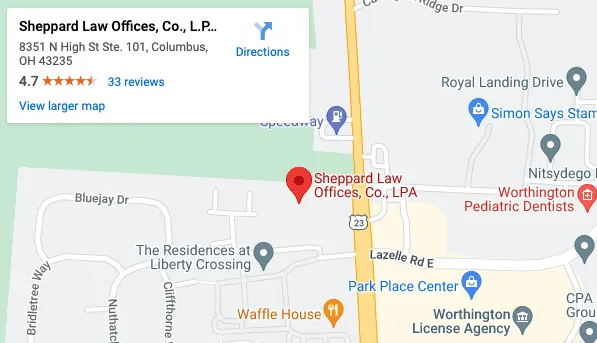Medical Bills Got You Stressed? Reset Your Finances With Bankruptcy
Many Americans, especially in Columbus, Ohio, are struggling with medical debt. The potential solution? Bankruptcy and medical debt relief. We’re here to tackle this tough topic with understanding and honesty. We offer guidance for those drowning in medical bills or considering bankruptcy. The struggle is real, but you’re not alone.
Unsettled medical debt is a big challenge. This is particularly true for those without solid health insurance. Emergency situations can lead to legal battles with collection agencies. This leaves individuals with limited choices: negotiate settlements or explore bankruptcy. For those drowning in medical bills, bankruptcy offers a chance at a fresh start. It provides relief from overwhelming financial burdens.
It’s also like hitting the reset button for those facing persistent financial repercussions. If you’re an Ohioan stressed by medical debt, bankruptcy and medical debt relief in Columbus, OH, might be your path to a new financial beginning.
Short Summary:
- Bankruptcy is a legal recourse for unmanageable debt. It offers a fresh start through debt elimination or restructuring.
- The common causes of medical debt are rising costs and out-of-pocket expenses. It leaves a disproportionate burden on vulnerable groups.
- To manage medical bills, check your credit. You can also explore settlements and search for financial assistance programs.
- Chapters 7 and 13 bankruptcy provide distinct solutions for individuals facing medical debt. They either discharge unsecured debts or restructure them into a manageable repayment plan. This offers a path towards financial relief and stability.
- There is a negative effect on your credit score if you file for bankruptcy. But it can improve over time.
People with overwhelming money problems must understand how medical debt affects bankruptcy. Bankruptcy in Columbus, OH includes Chapter 7 and Chapter 13. It offers specific ways to relieve medical debt but may impact credit. But good news is, it offers the prospect of restoring financial stability.
What is Bankruptcy?
Bankruptcy is a legal process that helps individuals and businesses who cannot repay their debts. It provides a framework for the fair and orderly distribution of assets. It also provides relief from certain financial obligations. Bankruptcy aims to give debtors a fresh start. It does this by either eliminating or restructuring their debts with court supervision.
But bankruptcy is also a complex legal process. Its implications can vary depending on individual circumstances.
What is Medical Debt?
Medical debt arises from various factors. These include increasing insurance costs and lost income. There are high out-of-pocket expenses like co-pays, medical supplies, and prescription drugs. There are also unreimbursed costs for treatments and surgeries. People often accumulate medical debt. A significant part of third-party debt collections consists of medical bills.
This issue affects people with disabilities and lower incomes the most. It makes minorities more vulnerable. Note that there is no specific bankruptcy category only for medical debt. It is generally considered forgivable and falls under unsecured debt without collateral.
Bankruptcy filings encompass medical debt and other financial obligations. These include credit cards and personal loans. Medical debt is a common trigger for bankruptcy. It’s essential to assess all debts before determining the most suitable approach. Unsecured debts, like medical bills, are more likely to be discharged in bankruptcy.
What Should I Do About Medical Bills?
If you’re facing challenges with medical debt, consider the following recommendations:
- Keep a close eye on your credit reports and Explanation of Benefits (EOBs). Contact your provider or insurance company if you spot errors or paid bad debt persists. You should also dispute with the credit reporting agency for medical debts less than six months overdue on your credit report. Delinquent medical bills may take up to seven years to disappear. Yet, their impact on your credit score lessens over time.
- Avoid using credit cards for medical debt. High-interest rates apply. Creditors treat it like regular debt, foregoing any protections associated with medical bills.
- Explore settlement options. If the insurer denies your claim, ask your healthcare provider for more time. Do this before they send your unpaid bill to a debt collector. Providers might offer installment plans with minimal or no interest. They may also accept a reduced amount instead of a lengthy dispute or facing bankruptcy. If negotiating proves challenging, consider seeking help from a consumer advocate. Get help from a Health CPA, medical cost advocate, or insurance negotiating service.
- Prevent reporting. Ask the original provider to retract medical bills from collections. This will enable direct payment without reporting to the account. If a bill reaches a collection agency, ask them not to report it upon immediate payment. If you detect unfairness, file a complaint with the Consumer Financial Protection Bureau. You can also file a complaint with the Ohio Attorney General.
- Explore patient financial assistance. Most hospitals offer patient assistance programs. These include charity care (free of charge) and discount programs based on federal poverty guidelines. It is designed for application before treatment. You can still apply after receiving your initial medical bill. Nonprofit hospitals divide a part of revenue to charity care. They do this to qualify for tax breaks.
- Consider bankruptcy protection as a last resort. Some individuals choose bankruptcy and medical debt relief in Columbus, OH, when medical debts become overwhelming.
Which Bankruptcy Option is Right for Eliminating Medical Debt?
In your situation, two types of bankruptcy might help cut your medical debt.
Chapter 7 Bankruptcy:
Consider Chapter 7 bankruptcy for swift relief from debts and collection efforts. It is also advisable if your income falls below Ohio’s current median income for a household of your size. In Chapter 7, debtors sell some assets to repay priority and secured debts. Any remaining unsecured debts, including medical debts, are usually discharged. To protect certain assets, you can leverage exemptions allowed under state law. Chapter 7 bankruptcy proceedings conclude in four to six months on average.
Chapter 13 Bankruptcy:
Chapter 13 bankruptcy might be a better choice if you have a steady income that could help you repay debt in time. It also works if you don’t qualify for Chapter 7. Often called the “wage earner’s plan,” Chapter 13 allows debtors to keep their assets. They can create a three- to five-year plan for repaying debts. To qualify, you need regular income, unsecured debts under $394,725, and secured debts under $1,184,200. Chapter 13 cases generally take longer to resolve. This is due to the need of establishing a multi-year repayment plan. At the end of the repayment plan period, any remaining debt, including medical debt, is discharged.
What Alternatives Are There Besides Bankruptcy for Dealing with Medical Debt?
People with good credit have several options to handle large medical bills.
Negotiate with the Medical Provider:
Once you resolve any issues about insurance payments, engage in discussions with your medical provider. After exhausting available insurance coverage, consider negotiating a settlement with the creditor. If the bill is for uninsured medical expenses, the medical provider may be open to waiving a part of the total amount. Many hospitals and healthcare providers waive bills or give discounts to uninsured patients.
Explore Assistance Programs:
Most hospitals offer assistance programs. They provide free or reduced-cost hospital care based on income levels. The programs have specific eligibility criteria. For example, the Hospital Care Assurance Program (HCAP) covers essential medical services in some states. Non-profit hospitals with federal tax-exempt status may also offer lenient billing terms. Consult your hospital’s financial aid counselor for information about relevant coverage. They can also help with the application process.
Debt Management Strategy:
Before medical bills become overwhelming, consider seeking advice from a credit counseling agency. Non-profit credit organizations can help create a repayment plan. They might offer extended terms with lower interest rates and no extra fees.
Will Declaring Bankruptcy Affect My Credit?
Filing for bankruptcy can have both positive and negative impacts on your credit. Upon filing, you can expect an initial decrease in your credit score.
Chapter 7 bankruptcies can have a detrimental effect on your credit score. They linger on your credit report for ten years from the filing date. Chapter 13 bankruptcies also affect your score. They have a shorter duration on your credit report, lasting for seven years. Even so, the impact of bankruptcy tends to diminish over time.
Lenders can view bankruptcy in the public records section of your credit report for several years. It doesn’t matter which type of bankruptcy. A bankruptcy history on your credit report may harm your chances of getting loans. Future lenders might deny you certain loans or offer you worse terms.
Bankruptcy may harm your credit at first. But it provides an opportunity for rebuilding over time. If you don’t pay medical bills, things could get worse. Avoid improving your financial situation. After filing for bankruptcy, many people get new credit. They also see their credit score improve within a reasonable period.
Our Ohio Bankruptcy Attorneys Are Here To Help You!
Understanding what happens to medical debt in bankruptcy in Columbus, OH is crucial. This knowledge is essential for individuals facing overwhelming financial challenges. Bankruptcy can offer a path to medical debt relief. Chapter 7 and Chapter 13 provide distinct options based on individual circumstances. The process may impact credit at first. Yet it also opens the door to rebuilding financial stability over time.
Contact Sheppard Law Offices for a free consultation and personalized guidance. We encourage you to. Our experienced Columbus legal team is dedicated to helping you navigate bankruptcy. We offer support and legal guidance to help you achieve a more secure financial future. Don’t hesitate to take the first step in addressing your medical debt. Call our law firm today for the help you need.



